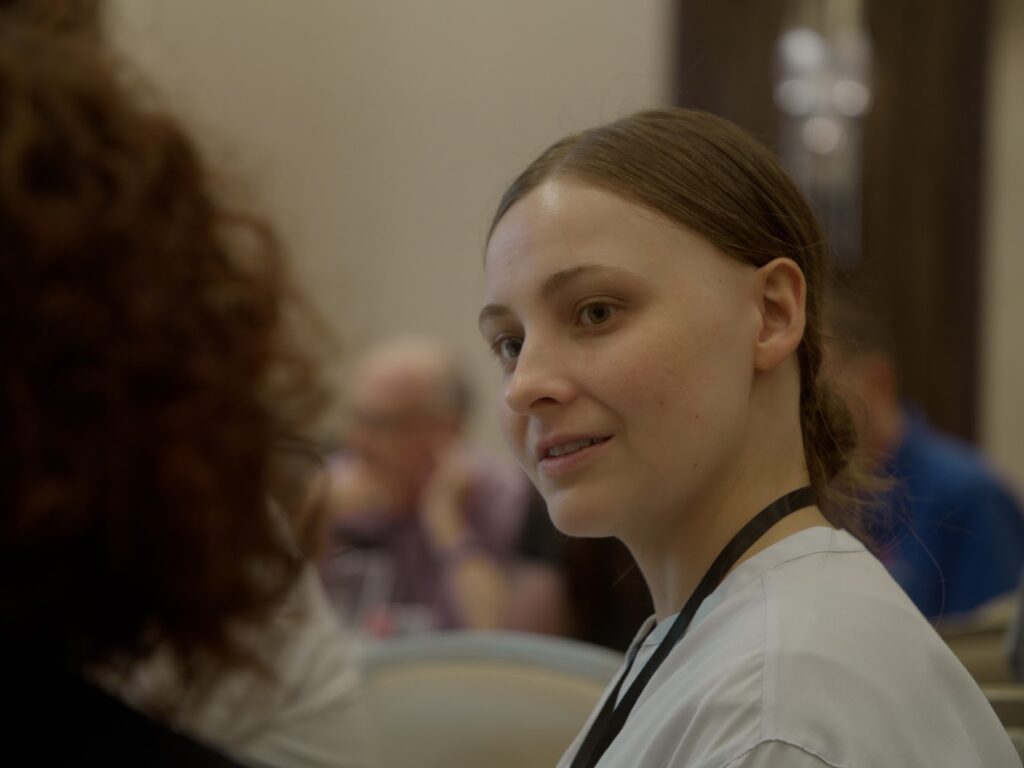February 12, 2019 / Esther Choy

Engage your audience with inspirational visuals. Sagebrush in bloom on the eastern slope of the Sierra Nevadas.
We must earn the right to our audience’s attention.
Telling stories, whether in a presentation or conversation, is not about you–it’s about your audience.
Why should people care about what you have to say? Is it because you think your content is important? Because you have a burning desire to share it? No. To manage our audience’s attention spans, we all need to earn our right to tell stories.
How do you earn that right? You have to constantly engage your audience. The five quotes below give you a crash course on how to do this naturally.
1. “To make our communications more effective, we need to shift our thinking from ‘What information do I need to convey?’ to ‘What questions do I want my audience to ask?’”
(Chip Heath, professor at Stanford Graduate School of Business)
Questions are the target to aim for when you prepare a presentation, elevator pitch, or intentional conversation. You want to inspire the right questions in your audience. Give a mock presentation and ask those giving you feedback, “After hearing this conversation, what questions do you have for me?”
If needed, revise your presentation so that you elicit the right questions and a genuine conversation can emerge.
2. “Storytelling is fine as long as you can encourage people to act on the stories.”
(Karen Armstrong, religious historian)
Armstrong said this in the context of working with faith leaders to implement a “Charter for Compassion.” This charter would provide a unifying and actionable statement on human morality. She hoped that storytelling would not just lead to more storytelling and good feelings, but to rigorous thinking about how to practice compassion even when life is at its most complex.
It’s a perceptive comment to challenge any leader. Once you engage your audience, what do you want them to do based on the story you present? Whether in the public or private sector, stories should induce action.
3. “My experience of great storytelling, working with classics, is just finding a way to present it simply but let the story do its own work, or be an invite to the audience’s imagination.”
(Kenneth Branagh, actor)
I wish I had included this quote in my book, Let the Story Do The Work! Branagh sums up my whole philosophy: if you tell a compelling story, you hook the audience’s interest and spark their imagination.
4. “I’ve learned that people will forget what you said, people will forget what you did, but people will never forget how you made them feel.”
(Maya Angelou, poet and civil rights activist)
Keeping an audience engaged is not only about the moment when they listen to your presentation; it’s also about what they remember afterward. It’s about whether they walk away feeling curious vs. bored, inspired vs. indifferent, confident vs. overwhelmed.
The kind of plot you choose can have much to do with how the audience feels. For instance, “overcoming the monster” plots can awaken audience’s righteous anger toward injustice. “Underdog” stories make audiences empathize. Origin stories satisfy the audience’s curiosity.
By matching the plot to what you know about your audience, you can guide their emotions and actions.
5. “Speech belongs half to the speaker, half to the listener.”
(Michel de Montaigne, philosopher)
Montaigne, writing in the sixteenth century, pictured speech like a tennis game. How are you preparing your audience to receive what you are serving? Never forget your “other half” when you give a presentation. So there you have it. Even if the spotlight is on you as the teller, never forget that it’s always about the audience. Tell stories that hook your audience’s attention, spark their imagination, align your emotion with theirs and induce action.
Don’t miss out on your next opportunity to tell a story and intrigue and delight your audiences. Contact us for business storytelling training.
Related Articles
5 Quotes That Teach You Everything You Need To Know About Leadership Storytelling
How to Make a Dry Topic Riveting: Esther Speaks with Roger Dooley on The Brainfluence Podcast
This article originally appeared on Forbes.com.
Better Every Story
"This is an amazing and insightful post! I hadn’t thought of that so you broadened my perspective. I always appreciate your insight!" - Dan B.
Join the thousands who receive Esther Choy’s insights, best practices and examples of great storytelling in our twice monthly newsletter.




